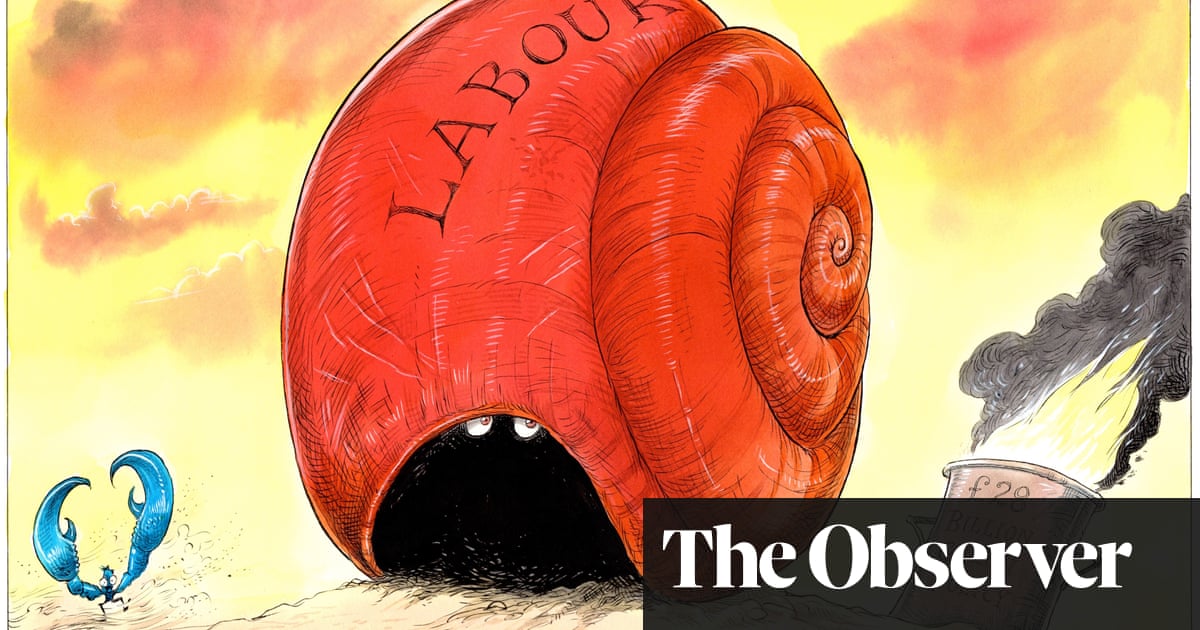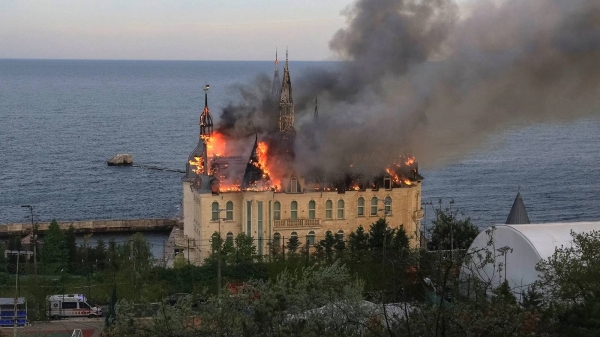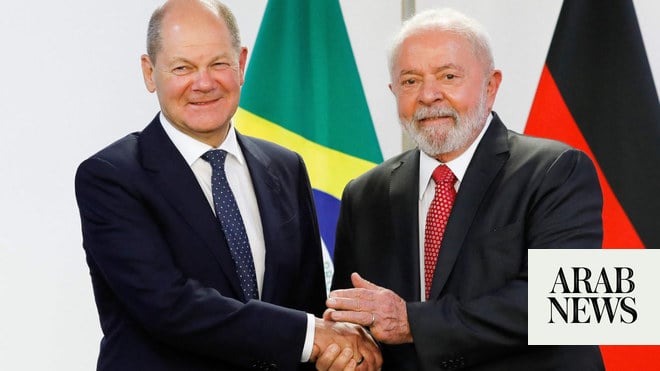
Jair Bolsonaro smiles down from a propaganda billboard at the entrance to this scruffy Amazon outpost, welcoming travelers to his “route to development”.
But 20 months into Bolsonaro’s presidency – and a year after a devastating outbreak of Amazon fires caused global outrage – the fires are back, and many fear Brazil’s leader is instead steering his country towards environmental ruin.
During a two-hour monitoring flight through the skies around Novo Progresso the Guardian saw giant columns of white and grey smoke rising from supposedly protected forests below.
Elsewhere, illegal goldmines could be seen within the Baú indigenous territory – a chaotic tapestry of muddy pools and makeshift encampments where pristine forest once stood. Newly deforested areas of fallen and charred trees were visible within the Iriri forest reserve.
“The Amazon is condemned to destruction,” despaired one former top official at Brazil’s enfeebled environmental agency, Ibama, accusing the far-right populist of overseeing a wholesale “demolition” of protection efforts.
“Under this government there will be no combating [of rainforest destruction],” the ex-official said. “The future looks dark.”
Under pressure from foreign investors, governments and Brazilian business leaders to avoid a repeat of last year’s scandal – when celebrities and world leaders such as Leonardo DiCaprio and Emmanuel Macron condemned Bolsonaro’s treatment of the Amazon – Brazil’s government has gone on the offensive.
“This story that the Amazon is going up in flames is a lie,” Bolsonaro insisted earlier this month, despite growing evidence to the contrary.
In May thousands of troops were deployed to the Amazon as part of a military mission supposedly designed to cut environmental crime – but which some claim is making things worse.
In July, as pressure from international investors intensified, Brazil announced a four-month ban on burning designed to reassure the world something was being done.
But satellite imagery being gathered by Brazil’s own space agency, Inpe, suggests those efforts are falling short. In August it detected more than 7,600 fires in Amazonas – one of nine states making up the Brazilian Amazon – the highest number since 1998 and nearly 1,000 more than last year. On Tuesday Inpe announced that across the entire Amazon region it had detected more than 29,307 fires in August – the second highest number in a decade and only slightly less than last year’s figure of 30,900.
Greenpeace calculated that despite the military mobilization and burning ban there had been only an 8% reduction in fires between mid-July and mid-August compared with last year.
“We are watching last year’s tragedy repeat itself,” said Rômulo Batista, a Greenpeace campaigner in Manaus, the capital of Amazonas.
During a recent surveillance flight over four Amazon states – Amazonas, Mato Grosso, Rondônia and Pará – Batista also witnessed shocking scenes of devastation.
“We saw tracts of pasture that were burning, deforested areas that were burning, areas of forest that were burning. And it was obvious that down there in the forest below us nobody was staying at home [because of coronavirus],” he said.
“Everyone – illegal loggers, land grabbers, illegal miners – they’re all up and running, and even more so than usual, safe in the knowledge that government inspections have been scaled back because of the pandemic.”
A monitoring official from the indigenous NGO Instituto Kabu, which organized the Guardian’s single-engine flight over Pará state, said: “There has been a flagrant increase in illegal mining and logging activities in the last two years. The lack of inspection operations by Ibama and the federal police in this region has ended up encouraging environmental crimes in indigenous territories.”
Bep Protti Mekrãgnoti Re, a chieftain for the indigenous Kayapó people, said its communities were paying a heavy price for the government’s anti-environmental stance.
“What Bolsonaro’s development means is destruction within our reserve,” said Bep Protti who recently led a week-long blockade of the Amazon highway cutting through Novo Progresso to demand protection.
He called for urgent action to monitor and protect the region’s forests and the wildlife within: “It’s with the forest and the rivers that I feed myself.”
The chieftain said two models of development were currently facing off in the Amazon: “the development of destruction” and the sustainable “development of construction and knowledge”.
Environmentalists are clear which model Bolsonaro – who took office in January 2019 vowing to open the Amazon and its indigenous reserves to development – is pursuing.
“This is without doubt the worst moment in more than 30 years that we are facing in Brazil. And unfortunately it was entirely expected because the president was elected thanks to his anti-environment rhetoric – and now he is making good on those promises,” said Carlos Rittl, a Brazilian environmentalist who works at Germany’s Institute for Advanced Sustainability Studies.
“The feeling is one of desolation,” Rittl said, adding: “2020 is going to be a terrible year.”
Batista compared Bolsonaro’s approach to the forest fires to his denialist handling of coronavirus, which has now killed more than 120,000 Brazilians. The far-right populist hoped to deny satellite images and science and project “an air of normality” to the world “just as he did with Covid-19”. “Unfortunately, this simply isn’t true.”
The former Ibama official was similarly pessimistic, claiming its operations were “completely paralyzed” and Brazil’s environmental policies in tatters. The organization, reeling from years of cuts, had only six helicopters to police the Amazon’s 2.1m square miles, with plans to take two more of those out of service. “If you ask me, to fight deforestation we would need at least 12.”
Last week Brazil’s environment minister announced that all anti-deforestation operations were to be halted, although that was reversed after an outcry.
Rittl called the latest fires – which are likely to continue until October – “a tragedy foretold” and the consequence of “a government with absolutely no commitment to the environment”.
“Under Bolsonaro, Brazil is becoming perhaps the greatest global enemy of the environment. It is so sad to see,” he said. ”A tiny number of people grow very rich with this – and all of us lose.”












